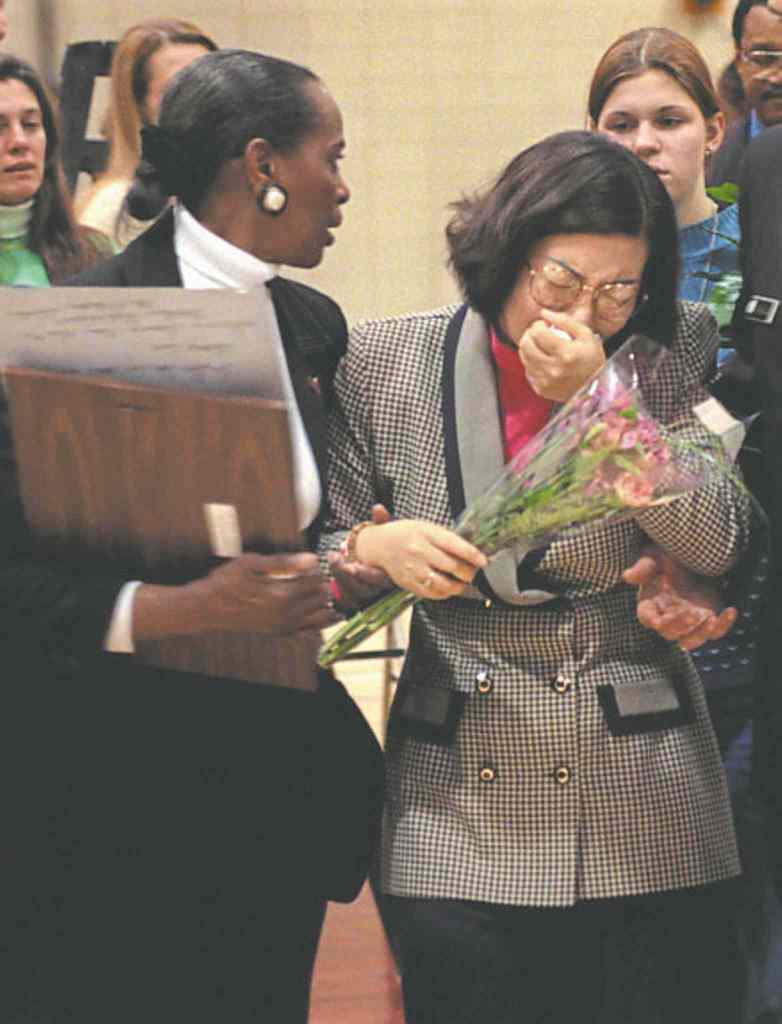Adnan Syed is guilty beyond a reasonable doubt of the murder of Hae Min Lee. Before I get into the core of my argument, one crucial thing to understand is that the legal system does not require one hundred percent certainty of the events that occured on January 13th (the date of Hae’s murder) to prove Adnan Syed’s guilt. Nor is there a need to completely eliminate all doubts about the case. The legal system operates on a standard of reasonable doubt, which means that all the prosecution needs to do is to convince the jury of Adnan Syed’s guilt beyond a reasonable doubt. Here is a video by Attorney Timothy Zerillo which goes into more detail about the concept of reasonable doubt:
This being said, I’m ninety percent sure that Adnan Syed is guilty. I set out my reasons here, and if you have any disagreements, I’m always open to hearing differing perspectives. Leave a comment and I will be happy to hear your opinion!
1. Jay Knew Details from the Crime
Firstly, Jay knew some key facts about the case that the police hadn’t released: Jay knew Hae was buried face down, and he correctly described the clothes she was wearing that day (Macgillivary, 17). He also gave some of these details to witnesses before the police interview. Jay also led law enforcement to Adnan’s car while they were still looking for it (Maroney). This proves that at the very minimum, Jay was involved in the crime.
Jay says that Adnan committed the murder, but a possibility is that Jay tried to frame him for the murder. The problem with this theory is that Jay had no motive to kill Hae. Adnan and Jay are also linked throughout the night of the murder, as I explain below.
2. Adnan and Jay Were Together for Much of That Night
On the Serial podcast website there is a phone call log from Adnan’s phone on the 12th and 13th of January. The phone call logs include the “cell site” from which the call was made, i.e. the cell tower that was covering the area and was pinged by the cell phone. The individuals contacted on the 13th are a mix of Jay and Adnan’s contacts, showing that they were together a lot that day (“Cell Phone Call Log”). The most critical call is the one made to Nisha at 3:22 pm, placing them together at the time of the crime. Thus, we can safely rule out the theory that Jay tried to pin the blame on Adnan, as they were together that afternoon.
3. Adnan has No Alibi
Having listened to the Serial podcast and the interview clips with Adnan, he doesn’t seem to have a concrete alibi. He speaks vaguely, using a lot of “probably”s, and doesn’t seem to have a unified theory of what happened on the day of the murder. This is strange, as he seems to have a good recollection of his conversation with Asia, and remembers the phone call from the police. He later says that he was probably at the mosque that night, but the call logs contradict this, showing that he was moving, presumably in a car (“Cell Phone Call Log”). Now, on the night of the burial, Adnan’s cell phone pings antenna L689B, the one covering the burial site, at around 7 pm. The logs indicate that two calls were received, one at 7 pm, and a second fifteen minutes later. Although cell phone data can’t pinpoint his exact location, the probability of Adnan’s phone pinging that specific cell tower twice in one night is too important to ignore. From this data, I conclude that both Adnan and Jay were at the site of the burial on the evening of the 13th.
Without involving some sort of conspiracy theory about police hiding evidence, it seems that the killer had to be either Adnan or Jay. Jay had absolutely no motive, and they were together on the afternoon of the killing anyways, so he couldn’t have framed Adnan. An important thing to remember, that isn’t mentioned much in Serial, is that Hae had recently broken up with Adnan, and he’d learned about it only a few days before the murder. Here’s a quote from Hae’s diary, presented at the trial, which I found interesting:
“Okay. Here it goes. I’m really getting annoyed that this situation is going the way it is. I (inaudible) for me and you, you know. People break up all the time. You life is not going to end. You’ll move on and I’ll move on, but apparently you don’t respect me enough to accept my decision. I really couldn’t give a damn about whatever you want to say. With the way things have been since 7:45 a.m. this morning now I’m more certain that I made the right choice. The more fuss you make the more I’m determined to do what I’ve got to do. I really don’t think I can be in a relationship like we had. Not between us, but mostly about the stuff around us. I seriously did expect you to accept, although not understand. I’ll busy today, tomorrow and probably till Thursday I’ve got other tings to do. Better than give you any hope that we’ll get back together. I really don’t see that happening, especially now. I never wanted to end like this, so hostile and cold. But I really don’t know what do do. Hate me if you will, but you should remember that I could never hate you” (Miller, 333).
This quote completely changed my view of the dynamic between Hae and Adnan. According to this quote, there was definitely hostility and tension between her and Adnan after their breakup, reinforcing his motive for killing her.
Thus, having eliminated Jay as having no motive or possibility of him framing Adnan, I have come to the conclusion that Adnan killed Hae Min Lee. This is not to say that I am certain of his guilt, as there are certainly discrepancies and details that do not match perfectly. But in my opinion, Adnan Syed is guilty beyond a reasonable doubt.
P.S. To end this post off on a lighter note, I’ve embedded a Saturday Night Live parody of the Serial podcast that I found to be quite funny:
Works Cited
Macgillivary, Greg. “Progress Report Homicide Investigation.” Serial Podcast Origins, 1999, serialpodcastorigins.files.wordpress.com/2017/10/2-28-1999-jay-interview.pdf.
Maroney, Tyler, and Luke Brindle-Khym. “How We Reinvestigated the ‘Serial’ Murder for HBO.” The Wall Street Journal, Dow Jones & Company, 11 Mar. 2019, http://www.wsj.com/articles/adnan-syed-hbo-documentary-serial-murder-case-11552313829.
“Cell Phone Call Log.” Serial, serialpodcast.org/maps/cell-phone-call-log.
Miller, Sandra. “State of Maryland vs Adnan Syed.” DocDroid, 13 Dec. 1999, http://www.docdroid.net/qu48/december131999-ocr-pdf#page=47.
How a blog post lets me provide my opinion better than other media texts
I think that a blog post is the best option for me to convey my opinion to the audience compared to other mediums. For one, text-based mediums always require more focus than video-based ones, which are more focused on entertaining the viewer. For this reason I think a blog post is superior in this aspect as it keeps the reader focused rather than laid-back. I think that many people take a more relaxed approached when viewing video-based content, which isn’t always good in a case like this. People also have a hard time giving credibility to videos, and are more inclined to trust text-based sources, probably because it has been around for so much longer than the other mediums (roughly 10,000 years for text versus about 100 years for film/video).
An advantage that a blog post has over an aural medium like a podcast is the ability to include visual elements such as images and videos. I think that for casual purposes podcasts are fine, but if you want to express your opinions in a way to which people will be receptive, you should use text. For example, I enjoy listening to audio books, but I often find it harder to remember the contents of the text versus when I read a traditional paper book.
Text mediums are seen as the most formal than the other mediums, and I would say this is because it is the default form of communication in the professional and scientific world (email, reports, scientific papers, memos, etc.). I think text mediums are, and will remain, the standard for those who want to express an opinion or make a statement and be taken seriously. Reading takes detailed attention, making your reader absorb and process the information you’re conveying, whereas watching video or listening to podcast is passive, and doesn’t engage the viewer/listener.
Blog posts have the advantage of being grounded in text, but they have the flexibility to reach into any other medium, and include any kind of media the writer wishes. This option isn’t universal, for example you cannot add a video file into a audio-only podcast or a video into a static picture. The blog post is the perfect medium for integrating all of these elements into a single piece of media.










